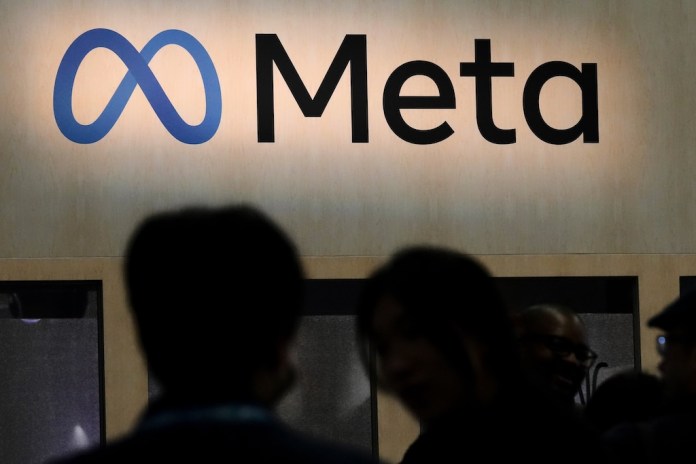Why Chinese App ‘Red Note’ Is Just As Bad As TikTok
On Sunday,TikTok faced temporary downtime after a U.S. Supreme Court ruling mandated that its Chinese parent company, ByteDance, divest or risk a ban by January 19, 2025. former President Trump proposed an executive order to delay the law’s enforcement, allowing TikTok to resume operations in the U.S. Consequently, many American users began seeking alternatives, with Red Note, a Chinese app also known as Xiaohongshu, emerging as a leading choice.
Red Note, wich has gained popularity in the U.S.,is reminiscent of TikTok but is primarily aimed at a Chinese-speaking demographic. it allows users to share short videos on various subjects,but it operates under stricter data security and censorship regulations due to its Chinese ownership. Despite the potential data privacy issues reflected in both apps, American users are transitioning to Red Note as a form of protest against U.S. legislation targeting TikTok. This trend has garnered attention in China, where state-controlled media are portraying American users of Red Note as “brave explorers” resisting thier government’s stance against China.
TikTok experienced downtime for a few hours on Sunday following a U.S. Supreme Court decision that upheld a federal law requiring its Chinese parent company, ByteDance, to divest ownership or face an outright ban in the U.S. by Jan. 19, 2025. President Trump intervened, however, announcing on Sunday that he would issue an executive order the next day to “extend the period before the law’s prohibitions take effect,” allowing time for a possible deal. As a result, TikTok quickly declared it was back in operation in the U.S.
Now America faces an even more dangerous data security landscape because, anticipating a looming TikTok ban, many American users had begun searching for alternatives. One app that has emerged as a popular choice for these so-called TikTok “refugees” is “Red Note,” a Chinese app that has rapidly gained traction in the U.S. Taylor Lorenz, a former tech writer for The New York Times and The Washington Post, has taken to X to encourage her followers to join her on Red Note, labeling it “the hottest new social app in America!!”
Red Note is owned by Xingin Information Technology, a company based in Shanghai. The app’s Chinese name is Xiaohongshu, which translates to “Little Red Book.” This name pays tribute to the small book containing quotes from the speeches and writings of Chinese Communist dictator Chairman Mao. During China’s Cultural Revolution, millions of Chinese citizens were required to carry these little books with bright red covers to study and memorize Mao’s words anytime and anywhere. The book was also a popular wedding gift during that era, as it was one of the few items readily available amid widespread shortages of other goods.
Mao Wenchao, the Chinese founder of Red Note, has no known relation to Chairman Mao. He asserts that while his app plays off a name familiar to the Chinese people, it does not endorse or promote Chinese nationalism. Like TikTok, Red Note allows users to share short videos and chat about seemingly harmless topics, such as cat videos, fashion, and travel tips.
The key difference between TikTok and Red Note is that TikTok, developed by ByteDance, is not available in China. ByteDance created TikTok to target global users outside China. Within China, ByteDance markets a similar app called Douyin, which focuses on educational content to shield Chinese children from many of the potential harms of social media.
In contrast, Red Note is aimed at a Chinese-speaking audience, with most of its interface and functionality written in Chinese. Red Note is one of China’s fastest-growing social media sites, boasting 300 million users. Despite being one of the few made-in-China apps available in the U.S., most Americans had not heard of it until recently.
No one is certain how it began, but many American TikTok users started signing up for Red Note, treating it as a preferred alternative in case TikTok gets banned. Despite language barriers, Red Note has become the most downloaded free app in the Apple App Store in the U.S.
It’s important to recognize that many of the same issues concerning TikTok, such as data security and speech censorship, also apply to Red Note.
Like TikTok, Red Note gathers an extensive amount of user data. Red Note, much like its Chinese parent company, ByteDance, operates under China’s data security law, which permits the government unfettered access to user information whenever it chooses. Additionally, Red Note enforces severe speech censorship, potentially more rigorous than TikTok’s, as it adheres to the CCP’s long list of prohibited subjects. Ying Yin, a researcher at the University of Cyberjaya in Malaysia, pointed out in an interview, “There are numerous topics barred on the platform [Red Note], including vital areas like health care and finance.” Even innocuous typos or variations of Chinese leader Xi Jinping’s name are deemed unacceptable on Red Note.
Despite these significant concerns, why are so many Americans turning to Red Note? Some suggest this trend reflects a protest against U.S. legislation demanding TikTok to either divest or face a ban. One American user boldly asserted in a video message on Red Note: “Our government is out of their minds if they think we’re going to stand for this TikTok ban. … We’re just going to a new Chinese app, and here we are.”
Another American user told the Global Times, a propagandistic outlet of the Chinese Communist Party: “Our government vilifies China, claiming China will use TikTok to turn Americans against the US. We all think that is ridiculous. So as a protest, and with much humor we collectively decided to join Red Note and willingly give our info to China to show our government we don’t care and challenge them.”
As the Chinese government has consistently opposed U.S. legislation aimed at TikTok, the influx of American users on another Chinese app presented the CCP with an unexpected public relations win. State-run media in China, such as Global Times, highlight the Americans’ criticisms of their own government, emphasizing how Chinese users have embraced them on Red Note, calling them “brave explorers.”
The official publication of the Chinese Communist Party, the People’s Daily, stated that American TikTok users’ embrace of Red Note reflects the role of globalization in creating a sense of community. They argued that this aligns with the vision of China’s leader, Xi Jinping, who believes that “the foundation and hope of US-China relations lies with the peoples.” The editorial emphasized, “In the age of globalization and the internet, our community of shared destiny will only grow closer. Rather than referring to them as ‘refugees,’ let’s call them [American TikTokers] ‘villagers of Village Earth’ who have found a ‘new home.’”
These so-called American TikTok refugees, including Taylor Lorenz, are not acting with bravery but rather recklessness by adopting another Chinese app that comes with similar risks to TikTok. Their disregard for their own data security is troubling, and even more concerning is their apparent indifference to how their decisions may compromise the data security and national security of their fellow citizens.
The CCP understands that personal data can be effectively weaponized in future cyber warfare against the U.S. Thus, the CCP has tried to get its hands on the data of Americans by any means possible. No wonder China-based hackers are responsible for significant data hacking operations in the U.S. Treasury’s system and American telecom networks. Chinese apps are the Trojan horses that give the party another means to access Americans’ data. Unfortunately, the popularity of these apps in the U.S. is evidence that too many Americans are gladly handing over their information to the CCP on a silver platter while giving the U.S. government their middle fingers. No legislation can outlaw stupidity.
President Trump’s intervention to delay the TikTok ban means the U.S. will face additional challenges in addressing data security and national security threats from China. But the Chinese Communist Party has other avenues to access Americans’ data through Red Note. The China hawks in the Trump administration and Congress must reassess their strategies immediately and devise concrete actions to combat China’s persistent data and national security threats. Inaction is simply not an option.
Helen Raleigh, CFA, is an American entrepreneur, writer, and speaker. She’s a senior contributor at The Federalist. Her writings appear in other national media, including The Wall Street Journal and Fox News. Helen is the author of several books, including “Confucius Never Said” and “Backlash: How Communist China’s Aggression Has Backfired.” Her latest book is the 2nd edition of “The Broken Welcome Mat: America’s UnAmerican immigration policy, and how we should fix it.” Follow her on Parler and Twitter: @HRaleighspeaks.
" Conservative News Daily does not always share or support the views and opinions expressed here; they are just those of the writer."




